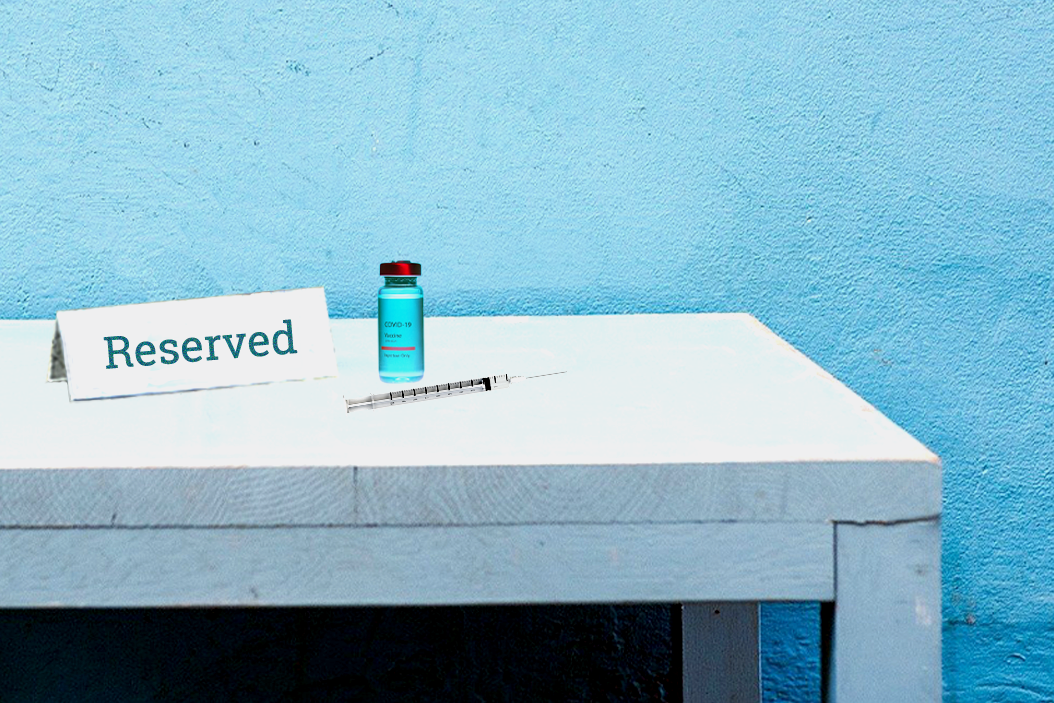Vaccines are the best hope to end the COVID-19 pandemic. But rich countries are hogging most of the doses, with more than 83 percent of shots administered to date having gone to residents in high- and upper-middle-income countries. Most poor countries will have to wait years to achieve widespread vaccination, according to one study.
To address this inequity some stakeholders are pushing hard for waivers to intellectual-property (IP) rights through World Trade Organization trade rules so that manufacturers in poorer countries can make their own vaccines locally. India and South Africa have been leading the charge, which would essentially mean that deep-pocketed pharma companies like New York-based Pfizer, for instance, would have to hand over the keys to the kingdom, allowing local companies in New Delhi and Johannesberg to make generic versions of their vaccines.
Unsurprisingly, the debate has gotten fiery, with passionate arguments emerging both for and against.
What are some arguments for a waiver?
It's the humane thing to do. To date, only 0.2 percent of all COVID vaccine doses have been administered in low-income countries. The virus is still spreading like wildfire in many places, and hospitalization and deaths are soaring in countries like India and Brazil. Relaxing rules on patents would mean more people would get vaccinated more quickly, saving scores of lives. The cost-benefit analysis is simple, argue advocates of waivers to IP rights like US Senator Bernie Sanders.
The economics of it all. In order for the global economy to return to sustained growth, equitable access to vaccines is crucial. Patents only serve the specific commercial interests of big pharma companies (Pfizer is making a 25-30 percent profit off its vaccine sales, making it one of the most "lucrative drugs" in the world.) The global economic bounce-back is dependent on a speedy global vaccination drive, and relaxing IP rules will fuel a surge in production.
Empowering lower-income states. Without a waiver, poorer countries will remain at the mercy of the US, the UK and the EU, which is itself mired in a complicated vaccine fiasco. Dependency on the "charity" of wealthy countries — and their multi-billionaire pharma industries — that could take years to deliver, is not a sustainable solution as countries race to prevent the spread of new more contagious variants. (Consider that Africa currently imports 99 percent of its vaccines for a population of 1.3 billion.)
What are some arguments against a waiver?
It would discourage innovation. Waiving IP rules for COVID-19 vaccines will disincentivize big pharmaceutical companies from investing time and money in complicated research and development required to produce safe and effective drugs. Taking away such a massive incentive for innovation would stunt developments needed to address future pressing health crises.
Quality control. Unlike medications, which are basic compounds that can be easily reproduced by trained chemists, new age vaccines are complicated biologics that use basic ingredients (sugar, gelatin, proteins) as well as modified viruses (viral vectors) and genetic technology (mRNA). To safely and effectively copy a vaccine, manufacturers need to have access to and understand the formula, and need the originator's full assistance to get such a complex operation off the ground. Failure to ensure this by hastily lifting IP rights could result in millions of potentially unsafe doses at a time when vaccine hesitancy remains high in many countries. Amid recent negotiations with Pfizer, the Australian government said that setting up the required tech to safely produce Pfizer's (mRNA) vaccine locally would take at least one year.
Think outside the box. Removing IP protections is not the only — nor the best — way to address the problem. One vaccine specialist has suggested that companies should license their IP rights to third parties in a "technology transfer" arrangement, resulting in more companies manufacturing doses (this could also happen through rich countries investing in infrastructure). Ngozi Okonjo-Iweala, the new WTO chief who has lobbied against "vaccine nationalism," has pointed to the licensing deal between UK-based AstraZeneca and India's Serum Institute as a model. Partnerships are also happening in the US, where the Biden administration brokered a deal between Merck and Johnson & Johnson, rival pharmaceutical companies, to boost production.
